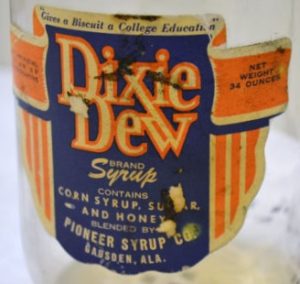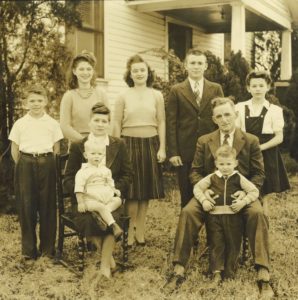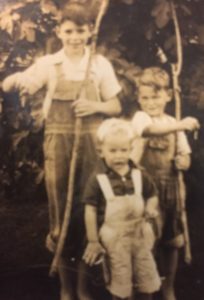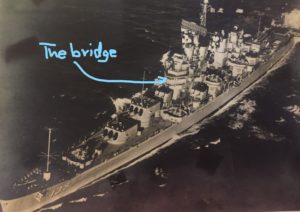Hello, operator?
I won’t there to hear this myself, but I heard it told several times by members of my family so here goes.
Back in the old days there was such a thing as a telephone operator, a real person you could talk to, who would help you find other people you wanted to talk to. Dial O and she would answer –it was always a “she” — and she would try to find the number you wanted.

Dad wanted the operator to find a honey man.
One of his businesses was making the finest honey flavored syrup known to man – that’s my considered opinion of “Dixie Dew.” Dad said he thought up the motto himself: “Gives a Biscuit a College Education.”
The recipe was simple: corn syrup, sugar, water, and honey, lots of honey. He bought it by the barrel and was always searching for more.
When we lived on a farm near Gadsden, Alabama, he got a lead on some honey in Georgia. So he dialed zero, got the operator on the phone, and he said:
“This is John Stith.”
[As if she cared.]
“I want to talk to a man with a white beard who sells honey. He lives in Georgia.”
[Pause.]
“No, I don’t know his number. That’s why I called you.”
She found him.
Checkmate
 I wasn’t a good chess player but my father was worse, really lousy, and a glutton for punishment. One Saturday when I was 12 or 13 years old he asked me if I knew how to play. I said I did and he told me to go get his chess set.
I wasn’t a good chess player but my father was worse, really lousy, and a glutton for punishment. One Saturday when I was 12 or 13 years old he asked me if I knew how to play. I said I did and he told me to go get his chess set.
I beat him 13 times in a row before he called it quits. And, believe me, I enjoyed every minute.
When we played he rarely won but when he did he would always ask me, “You’re not pulling your punches, are you boy?”
I’d answer, “No sir.”
But I wanted to say, “Hell no! I’d beat you 100 times in a row if I could.”
Mike and Pat

My father, John F. Stith Sr., and mother Alice May Cameron, had seven children and they nicknamed all of them except one, Jane.
Marjorie May, the oldest, was “Marge.”
John Franklin Jr. was called “Mike.”
Then Jane Cameron.
Alene Claire was called “Tom” when she was a girl, and for good reason. She was a daredevil.

Charles Talcott was named after one of his Dad’s brothers [who was named after a Southern officer who fought in the Civil War] but he was called “Pop,” a nickname that stuck.
David Howell was “Squeak” until he was almost grown.
William Foster [after his paternal great grandfather and maternal grandfather] was nicknamed Pat.
Why Pat?
My father said any family with a “Mike” had to have a “Pat.”
Coming Friday: THE GAFFNEY STRANGLER, Part 1
